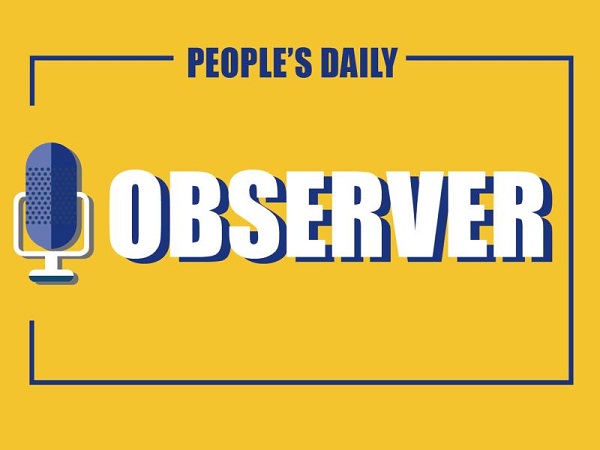
In late June, the US Congress passed a gun control bill - the toughest firearms legislation in nearly 30 years. But the bipartisan compromise appears to have merely been a placebo to cure America’s chronic disease of gun violence. What was supposed to be a joyous and festive Fourth of July to American families turned out to be a day of horror and shock, filled with tears and anger.
Over the past weekend, 13 mass shootings across the US caused at least 15 deaths and 79 injuries, with the deadliest being the Illinois Highland Park incident, where a gunman killed at least seven people and injured dozens during an Independence Day parade.
Gun violence exacts an enormous toll on American society. Researchers have estimated that nearly every American will know at least one victim of gun violence in their lifetime. Despite accounting for merely 4 percent of the world's population, the US holds about 40 percent of the world's total civilian firearms, and sees the highest rates of gun-related deaths among the high-income countries.
Since the start of the COVID-19 pandemic, the number of gun violence cases in the US have climbed to a record high. This year is on track to becoming one of the deadliest years in gun violence. According to the Gun Violence Archive, a nonprofit group tracking data on gun violence in the US, some 10,072 people nationwide died due to firearms in the first six months of 2022.
The US gun violence epidemic is emblematic of a broken political system. As mass shootings get deadlier and more common, public support for stricter gun measures has hit a record high in the US, recent polls found. However, entrenched partisanship and the gun lobby are greatly influential on congressional action, or indeed “inaction”, in dealing with gun violence.
The passage of the new landmark bill had been preceded by a decades-long gridlock on gun control in the US congress. The rare progress in gun control measures, which toughened gun access but did not ban assault weapons, is still deemed “weak” by gun-control advocates in terms of addressing the causes of shootings.
Ironically, on the same day the new gun bill was approved in Congress, across the street from the Capitol, the US Supreme Court dramatically expanded gun rights. It ruled, for the first time, that the US Constitution protects the right to carry firearms for self-defense in public, a “dangerous” decision likely to increase crime rates and make Americans less safe as experts have warned.
The controversial court ruling and congressional action further reveals a deep divide over firearms in a polarized America.
Incidences of mass shootings in the US are never simply safety breaches, but rest on deeper-rooted problems such as political and societal disorder. Besides governmental powerlessness and some loosening responses, the spike in hate crimes, racism, and a widening wealth gap also add fuel to the flames of gun violence. The US is still far from finding a solution to stopping such tragedies and consoling grieving families.


